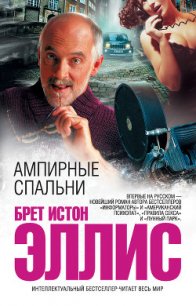Ice Blues - Stevenson Richard (бесплатные онлайн книги читаем полные версии .txt) 📗
"I don't believe, sir, that you quite understand how our system works. What I will need is a flight number and a date."
"Listen, Alex, that's why I'm calling you. You have that information. You're the airline, I'm the inquiring consumer. Can't you rummage around in your machine? Let's say he went out Saturday and came back Monday or Tuesday. Try that."
"He might have gone United or USAIR."
"From Albany you've got the most flights and the best connections. Just shake that thing a couple of times and see what drops out, will you?"
"Hang on, I'm putting you on hold."
"Don't play any music."
He did-a mononucleotic string arrangement of "Good Golly, Miss Molly."
Stevenson, Richard
Stevenson, Richard — [Donald Strachey Mystery 03] — Ice Blues
It went on for minutes.
"Donald?"
"Yo."
"A John Lenihan flew to LAX, changing at O'Hare, last Friday, January eleven, departing Albany five-eighteen P.M., arriving Los Angeles eight thirty-one. Mr. Lenihan returned on Tuesday, January fifteen, departing LAX at ten-fifteen A.M., changing at O'Hare, arriving Albany at seven-forty P.M. Lenihan-isn't that the name of the guy who was murdered, John Lenihan?"
I wrote the dates and times in my notebook. "No, that was John Hanrahan.
This one's a friend of mine."
"I thought I heard it was Lenihan. They found his body in a car somewhere-at a garage, frozen solid."
"Say, how's Joe doing?"
"Fantastic. He finishes his residency in June, and then we might get to spend half a day together."
"What will you do to celebrate?"
"He'll probably sleep. I'll watch some TV."
"Well, cheers."
"Thanks."
I removed the five small keys from Lenihan s letter. Each had a number painted on it, one through five, with what looked like fuchsia-colored nail polish. The numbering was sloppy, as if done with a nail-polishing brush, and small bits had begun to flake off. I inserted the keys onto my own key ring, pocketed the letter, and headed out into the winter playland.
FIVE
I pushed the button under J. Lenihan three times and got no response. It looked as if he had lived alone since his split with Warren Slonski. My Sears card popped the front-door lock on the old Victorian town house, now broken up into six small apartments. Sooty dun-colored paint was flaking off the stairwell walls, and the winding staircase itself hung ten degrees into the abyss and groaned as I moved up it. I stayed close to the wall.
My lobster pick got me into Lenihan's apartment, where lobster had not been served recently, just eggs, peanut butter and Wonder Bread. The kitchenette and one small drafty room were strewn with clothing, books, papers; the place had been turned inside out recently by someone, or someones, no doubt including the Albany cops. Whoever had done it had possessed keys, or at least a lobster pick.
Among the debris beside the rumpled daybed were a phone book, on the back of which were the word "Ma" and a Los Angeles area number, which I wrote down. I found no checkbook, phone bills, or other useful financial records-I figured Bowman must have waltzed off with them-but I did come up with a single stub off a week-old payroll check with Lenihan's name on it from Annie's Quiche Quorner on Lark Street. I knew the place.
The only other objects that seemed remarkable in Lenihan's gloomy quarters were a complete four-volume set of Morris Gerber's Old Albany, uninscribed and otherwise unmarked, and a battered RCA LP called "Opera for People Who Hate Opera." The other books were paperback best-sellers-Ludlum, Higgins, MacLean. Stacked up next to the discount-store stereo setup were thirty or forty 1960s rock
LPs-the Dead, Van Morrison, Janis Joplin, the Stones. I found no narcotics, no "fortune," and no clue suggesting that the occupant of this sorry little hole-in-the-wall had had recent possession of either.
I drove west on back streets, found an unoccupied snowbank on Jay, pulled up along it, and walked around to Annie's Quiche Quorner. With the state offices shut down the place wasn't busy during the lunch hour, so I was able to question Annie and her two waiters.
Once it was established that I was neither a health inspector nor a cop Bowman had called on Annie earlier and left a poor impression-they talked a little, but only to say they knew little of Jack Lenihan's personal life, were horrified by his dying, and couldn't imagine what kind of mess he might have gotten into that ended in his being killed. I asked if Lenihan might have been dealing drugs, and Annie, an immense sloe-eyed woman in black pants, said, "I wouldn't know about that."
The two waiters-who, like nearly everybody else on jazzy Lark Street, appeared to be twenty-five and not wasting a minute of it-looked at each other.
"He got me some hash once," one of them said.
"Was it any good?"
"The best."
"Did he say where he got it?"
"Shit, no. And I didn't ask."
"Mister," Annie said, "within a hundred yards of where you're sitting you could probably find two hundred people who could get you any type of controlled substance your heart desires. Stand out on the sidewalk and hold up a sign that you want drugs and they'll crawl right up out of the manholes. Jack probably just walked around the corner and asked anybody on the street. That doesn't make him a criminal."
"Did Jack have visitors here?" I asked.
"There were a couple people who came in who knew him," Annie said. "Neighborhood people, people he knew, I dunno. He didn't seem to have any real friends, not that came in here. Jack was nice, but he was a loner, I'd say."
"What about that guy last Friday," one of the waiters said, "who kept looking for Jack?"
"Oh, yeah, that spiffy one," Annie said, remembering. "He came in a couple of times asking for Jack when he wasn't here- Jack was mostly working nights. This guy looked more like lower State Street than Lark-La Serre or the Fort Orange Club. Good-looking older fella with an alpaca topcoat and a fifty-dollar haircut. I thought I'd seen his face before, but I couldn't place it.
In the movies or somewhere."
"Did he mention why he was looking for Jack?"
"He didn't say. He sure was anxious to track him down, though-came by later the same day and said Jack wasn't home, he'd tried his apartment. I told him Jack had the weekend off and didn't say where he'd be. The guy seemed real itchy to get in touch."
"Did he leave his name or any other message?"
"Unh-unh."
"Has he come back at all?"
"Nope. Hey, you said you're a private detective. Who are you working for anyway, Jack's family?".
"No, did he talk about them?"
"Not a word. I was amazed when I saw in the paper Jack was Pug Lenihan's grandson. A historical family, he came from, and Jack never let on."
"Did Jack mention any sort of project he was working on?"
"Project? What kind?"
"Any kind."
"If Jack had a project I think it went on inside his head. I always had the feeling there was an awful lot going on in there the rest of us were never gonna hear about. Jack came to work for me last October, and he looked like he had a lot on his mind when he got here and he looked like he had a lot on his mind the last time he left. Three months is a long time to be wrapped up in your thoughts like that. I'd've had a headache myself. Maybe it was some kind of family thing or project, is that what you mean? I know Jack was close to his mom. He was just back from seeing her in California when he started here last fall. Maybe she knows more about his private life.




